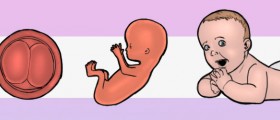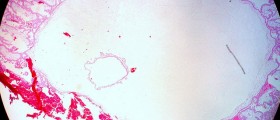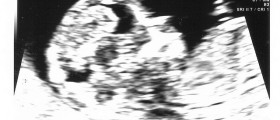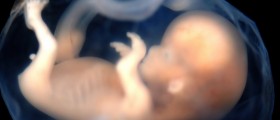
When your partners sperm and your egg come together, and the egg is fertilized, the one celled life that develops is referred to as a zygote. This is the first stage of human development. As the fertilized egg travels down to your uterus, before it starts implanting itself into the endometrium (the lining of the uterine wall), the number of cells increase, and your zygote becomes an embryo. The third week after the fertilization of the egg, which is the fifth week of pregnancy, the zygote officially graduates to the status of an embryo. The embryonic stage is one that is crucial to the development of your baby. This is the period when all the internal organs begin to develop, the brains forms, and the spinal cord. The baby's heart will also start beating, and a primitive circulatory system will commence functioning.
It is pretty amazing how all of that can happen in such a short period of time, isn't it? In a matter of weeks, your future baby goes from being only one cell, to a complete human being only extremely tiny. At eight weeks gestation, the embryo will start moving. You won't be able to feel anything by this stage though. In week ten, your embryo will have a neck, and the following week it will have genitals too. Then, by week twelve incidentally also the end of the first trimester of pregnancy your embryo will stop being an embryo, and will officially become a fetus! For more about the early stages of pregnancy, see How soon after a missed period can you take a pregnancy test?

















Your thoughts on this
Loading...